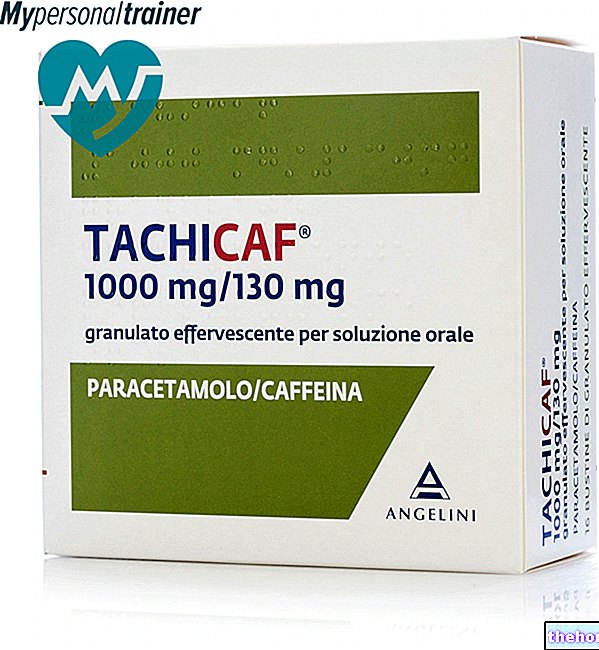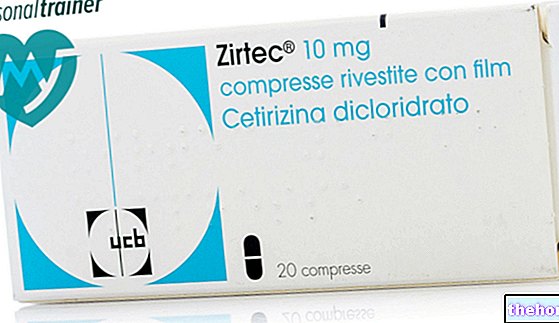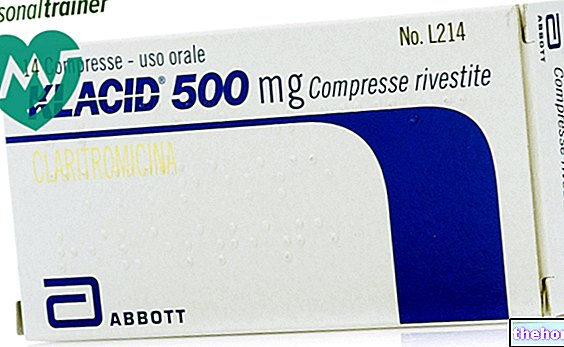Active ingredients: Bioflavonoids - Blueberry Anthocyanosides
TEGENS 160 mg hard capsules
TEGENS 160 mg granules for oral solution
Tegens package inserts are available for pack sizes: - TEGENS 160 mg hard capsules, TEGENS 160 mg granules for oral solution
- TEGENS 80 mg hard capsules, TEGENS 80 mg granules for oral solution
Why is Tegens used? What is it for?
TEGENS is a vasoprotector based on bioflavonoids extracted from blueberry (it serves to protect capillaries and veins).
Why is it used
Symptoms attributable to venous insufficiency; states of capillary fragility.
Contraindications When Tegens should not be used
When it should not be used
- Hypersensitivity to the active substance or to any of the excipients.
Precautions for use What you need to know before taking Tegens
When it can be used only after consulting your doctor
- Pregnancy and breastfeeding (see "What to do during pregnancy and" breastfeeding ")
- Children
It is advisable to consult the doctor even in cases where these disorders have already occurred in the past.
The clinical use has not highlighted the need for particular precautions for the use of the drug.
The use of the product is reserved for adults.
Interactions Which drugs or foods can modify the effect of Tegens
No phenomena referable to interaction with other substances have ever been reported.
If you are using other medicines ask your doctor or pharmacist for advice.
Warnings It is important to know that:
What to do during pregnancy and breastfeeding
The safety of the drug in pregnancy has not been established, therefore it is advisable not to administer the product during pregnancy.
When breastfeeding, TEGENS should only be used after consulting your doctor and evaluating with him the risk / benefit ratio in your case.
Consult your doctor if you suspect pregnancy or wish to plan a maternity leave.
There are no known negative effects on the ability to drive and use machines.
Dose, Method and Time of Administration How to use Tegens: Posology
- How many
ADULTS: in general, the recommended dosage schedule is as follows:
160 mg capsules or sachets: up to a maximum of 2 per day.
Warning: do not exceed the indicated doses without medical advice.
- When and for how long
TEGENS can be taken at any time of the day, regardless of meals.
TEGENS should be taken in the morning and evening, with 12-24 hour intervals.
Consult your doctor if the disorder occurs repeatedly or if you have noticed any recent changes in its characteristics.
Warning: use only for short periods of treatment.
- Like
The capsules are to be swallowed with a little water.
The granulate can be taken as such or dissolved in a little water; it is recommended in subjects with difficulty in swallowing and in conditions of irritability of the gastric mucosa from gastric-ulcerative processes.
Overdose What to do if you have taken too much Tegens
There are no known cases of overdose.
However, in case of accidental ingestion / intake of an excessive dose of TEGENS, notify your doctor immediately or go to the nearest hospital.
Side Effects What are the side effects of Tegens
Cases of gastrointestinal disturbances, such as heartburn, nausea and gastric heaviness, and skin rashes have been reported rarely.
Compliance with the instructions contained in the package leaflet reduces the risk of undesirable effects.
These side effects are usually transient. However, when they occur, it is advisable to consult your doctor or pharmacist.
It is important to inform your doctor or pharmacist of any side effects not described in the package leaflet. Request and fill in the Undesirable Effects report form available at the pharmacy (Form B).
Expiry and Retention
Store TEGENS 160 mg hard capsules at a temperature not exceeding 30 ° C.
Warning: do not use the medicine after the expiry date indicated on the package.
KEEP THE MEDICINAL PRODUCT OUT OF THE REACH OF CHILDREN.
It is important to always have the information about the medicine available, so keep both the box and the package leaflet.
Composition
TEGENS 160 mg hard capsules
Each capsule contains as active ingredient: cranberry anthocyanoside complex with 36% anthocyanosides (Myrtocyan®) 160 mg.
Excipients: mannitol, lactose, methylcellulose, citric acid, precipitated silica, magnesium stearate; carrier excipient: gelatin.
TEGENS 160 mg granules for oral solution
Each sachet contains as active ingredient: cranberry anthocyanoside complex with 36% anthocyanosides (Myrtocyan®) 160 mg.
Excipients: mannitol, lactose monohydrate, methylcellulose, anhydrous citric acid, blueberry flavoring, ammonium glycyrrhizate.
How it looks
TEGENS CAPSULES: 160 mg capsules for oral use; the contents of the packs are 20 capsules.
TEGENS GRANULATE: 160 mg sachets of granules for oral solution; the contents of the packs are 20 sachets.
Source Package Leaflet: AIFA (Italian Medicines Agency). Content published in January 2016. The information present may not be up-to-date.
To have access to the most up-to-date version, it is advisable to access the AIFA (Italian Medicines Agency) website. Disclaimer and useful information.
01.0 NAME OF THE MEDICINAL PRODUCT
TEGENS
02.0 QUALITATIVE AND QUANTITATIVE COMPOSITION
TEGENS 80 mg hard capsules:
Each capsule contains:
Active principle: blueberry anthocyanoside complex with 36% anthocyanosides (Myrtocyan) 80 mg.
TEGENS 160 mg hard capsules:
Each capsule contains:
Active principle: blueberry anthocyanoside complex with 36% anthocyanosides (Myrtocyan) 160 mg.
TEGENS 80 mg granules for oral solution:
Each sachet contains:
Active principle: blueberry anthocyanoside complex with 36% anthocyanosides (Myrtocyan) 80 mg.
TEGENS 160 mg granules for oral solution:
Each sachet contains:
Active principle: blueberry anthocyanoside complex with 36% anthocyanosides (Myrtocyan) 160 mg.
For excipients, see section 6.1.
03.0 PHARMACEUTICAL FORM
Hard capsules.
Granules for oral solution.
04.0 CLINICAL INFORMATION
04.1 Therapeutic indications
Symptoms attributable to venous insufficiency; states of capillary fragility.
04.2 Posology and method of administration
ADULTS:
in general, the recommended dosage schedule is as follows:
- 80 mg capsules or sachets of granules: 2-4 per day.
- 160 mg capsules or sachets of granules: 1-2 per day.
The granules, to be taken as such or dissolved in a little water, are recommended in subjects with difficulty in swallowing and in conditions of irritability of the gastric mucosa from gastric-ulcerative processes.
Do not exceed the recommended dose.
04.3 Contraindications
Hypersensitivity to the active substance or to any of the excipients.
04.4 Special warnings and appropriate precautions for use
USE OF THE PRODUCT IS RESTRICTED TO ADULTS.
As for all symptomatic treatments, it is necessary to contact your doctor if the symptoms do not improve after a short period of treatment. The clinical use has not highlighted the need for particular precautions for the use of the drug.
04.5 Interactions with other medicinal products and other forms of interaction
No phenomena referable to interactions with other substances have ever been reported.
04.6 Pregnancy and lactation
The safety of the drug in pregnancy has not been determined, therefore it is advisable not to administer the product during pregnancy.
In breastfeeding, the product should be used in cases of real need under the direct supervision of the Doctor.
04.7 Effects on ability to drive and use machines
There are no known adverse effects on the ability to drive and use machines.
04.8 Undesirable effects
TEGENS has excellent tolerability. There have been rare reports of gastrointestinal disturbances, such as heartburn, nausea and gastric heaviness, and skin rashes.
04.9 Overdose
No cases of overdose have been reported.
05.0 PHARMACOLOGICAL PROPERTIES
05.1 Pharmacodynamic properties
Pharmacotherapeutic group: Vasoprotectors - Capillary protective substances - Bioflavonoids.
ATC code: C05CA.
The anthocyanosides of the blueberry prevent the increase in capillary permeability experimentally caused both in the rat and in the rabbit: furthermore in the rat with capillary resistance reduced by a deficient diet, they carry out an intense vasoprotective activity which appears to be attributable to the following mechanisms: anthocyanosides as such and / o their aglucones form physico-chemical bonds with the phospholipids of the endothelial membranes, strengthening them; anthocyanosides stimulate the biosynthesis of some components of the fundamental substance of the connective tissue, in particular of the pericapillary mucopolysaccharide sleeve, and in vitro, the protein synthesis of endothelial cells: hence an increase in capillary resistance and the repair capacity of the endothelium.
For these reasons, anthocyanosides find application in primary or secondary capillary pathology to systemic diseases.
The anthocyanosides of the blueberry exert anti-inflammatory activity in the classical tests of the edema of the paw of the rat and of the erythema from U.V. rays in the guinea pig.
05.2 Pharmacokinetic properties
Administration of bilberry anthocyanosides intravenously or intraperitoneally to the rat results in a rapid distribution of the drug in the various parts of the body, followed by an elimination process that follows the scheme of the three-compartment pharmacokinetic model. The elimination of anthocyanosides occurs mainly through the urine and bile.
The modest difference between the amount of anthocyanosides eliminated after intravenous and intraperitoneal administration indicates a reduced uptake of these substances by the hepatic parenchyma. On the other hand, the affinity of anthocyanosides for other organs is greater, including mainly the kidney and skin. This phenomenon may explain the prolonged activity of anthocyanosides on capillary resistance, even when significant plasma levels are no longer documented.
05.3 Preclinical safety data
Non-clinical data reveal no risk for humans based on conventional studies of safety pharmacology, repeated dose toxicity, genotoxicity, carcinogenic potential, reproductive toxicity.
Acute, subacute and chronic toxicity tests conducted by various routes in different animal species have highlighted the low toxicity of Myrtocyan: in particular, chronic 6-month treatments carried out orally with doses equal to 320 mg / kg / day in the dog and 500 mg / kg / day in rats did not show symptoms of toxicity affecting the individual organs or significant changes in all the parameters examined.
Fetal toxicity studies did not show teratogenic or embryotoxic effects at the doses used in humans. Mutagenicity tests gave negative results.
06.0 PHARMACEUTICAL INFORMATION
06.1 Excipients
Hard capsules: mannitol, lactose, methylcellulose, citric acid, precipitated silica, magnesium stearate, gelatin (excipient of the shell).
Granules for oral solution: mannitol, lactose monohydrate, methylcellulose, anhydrous citric acid, blueberry flavoring, ammonium glycyrrhizate.
06.2 Incompatibility
None known.
06.3 Period of validity
Tegens hard capsules 80 mg, Tegens granules for oral solution 80 and 160 mg: 5 years.
Tegens hard capsules 160 mg: 3 years
06.4 Special precautions for storage
TEGENS hard capsules: store at a temperature not exceeding 30 ° C.
TEGENS granules for oral solution: no special storage precautions.
06.5 Nature of the immediate packaging and contents of the package
TEGENS hard capsules
20 hard capsules of 80/160 mg in Al / PVDC - PVC / PVDC blisters packed in cardboard box.
TEGENS granules for oral solution
20 sachets of granules for oral solution of 80/160 mg in sachets in coupled paper / aluminum / polythene heat-sealed in pairs with median knurling for easy tearing. The sachets are packed in a cardboard box.
06.6 Instructions for use and handling
No special instructions.
07.0 MARKETING AUTHORIZATION HOLDER
Sanofi S.p.A. - Viale L. Bodio, 37 / b - IT-20158 Milan
08.0 MARKETING AUTHORIZATION NUMBER
TEGENS 80 mg hard capsules: AIC 023539012
TEGENS 160 mg hard capsules: AIC 023539063
TEGENS 80 mg granules for oral solution: AIC 023539051
TEGENS 160 mg granules for oral solution: AIC 023539075
09.0 DATE OF FIRST AUTHORIZATION OR RENEWAL OF THE AUTHORIZATION
80 mg capsules: October 16, 1976 / June 1, 2010
160 mg capsules: 20 December 1984/1 June 2010
80 mg sachets: 30 April 1982/1 June 2010
160 mg sachets: 31 October 1994/1 June 2010
10.0 DATE OF REVISION OF THE TEXT
October 2014




























